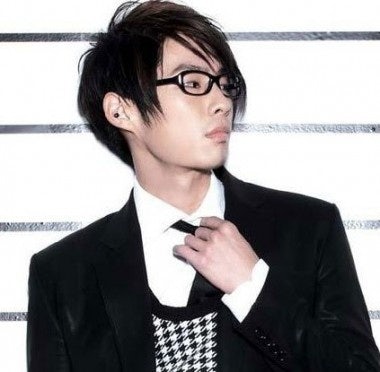Educated, Internationally Focused, Successful Young Professionals Often Overlooked In Favor Of Female, Older Shoppers#

If there's one thing that stands out about China's luxury consumers, it's their age. According to a recent McKinsey study, 80% of wealthy Chinese shoppers are under 45, and are on average 15-20 years younger than their Japanese or Western counterparts. Earlier this year, Jing Daily pointed out that Hong Kong high-end retailers had begun to more aggressively court mainland China's so-called "young tycoons," 30- and 40-something entrepreneurs and executives who have benefited the most from China's booming economy over the past 10 years. From our translation of a Junzi Men story on "young tycoons":
Near Harbor City, in Hong Kong’s Tsim Sha Tsui district, one can hear their accents – on the street, in shopping malls, everywhere you go there they are, the shopping-mad mainland luxury buyers. The nickname Hong Kongers have given to mainland visitors — “Hawks” (a transliteration of the literal “luxury shopper”, “hao ke” – JD) — is well founded. For lots of mainland tourists, the places they’re most interested are Hong Kong’s shopping malls, rather than Disneyland.
Although many luxury brands operating in China are trying to focus more on instilling greater brand loyalty in mainland Chinese women, or the older men who have long been reliable luxury buyers (previously on Jing Daily), one segment of high-end shoppers that shouldn't be ignored is what some Chinese fashion blogs are calling the "he fashion" (他时尚, "he fashion" or "he style") demographic. Worldly and educated, the values and consumption patterns of "he fashion" devotees -- whom Xinmin Weekly deem "a new elite intelligentsia" -- differ greatly from their female peers or older counterparts (who often purchase luxury goods with the intention of giving as gifts). From Xinmin's article on the emergence of "he fashion" (translation by Jing Daily team):
The values and viewpoints on consumption among the new generation of Chinese elite men have undergone a huge shift, leading to the formation of a new Chinese "elite intelligencia" with a different attitude towards life.
Accustomed to visiting the Louvre in Paris, unruffled at Christie's international art auctions in London; a seasoned traveler to the Mediterranean, looking crisp walking down the red carpet at Cannes; contemplating Plato's "Dialogues," always having something thoughtful to say at a summit of business leaders...Confident, calm, tasteful, surrounded by sophisticated items.
"He" was an outstanding student at Harvard Business School, 32 years old with a successful career, running a well-known domestic Internet company. He's obsessed with jewelry, calligraphy and painting, he loves nature and sightseeing overseas. He's partial to Lafite, Audi Q7 is his ride, Vacheron Constantin is the watch, and of course, he's got a Merchants Bank Platinum credit card.
"He" is the epitome of an elite gentleman. This contemporary Chinese elite displays its talent everywhere, and they're rapidly becoming the leaders of "he fashion."
Famous bags, premium fragrances, luxury jewelry, these used to be the domain of the ladies, but in a dramatic turnaround, now they're favored by the male elite. Amid the wave of Chinese fashion, male consumption rate has expanded from areas of earlier concentration. Some have even predicted that in the near future, "he fashion" will become the mainstream.
"The average wealthy Chinese man is 34 years old, with an average annual salary of 510,000 yuan (US$74,695). 81% have a college education, and they mostly work in executive positions. High-end male consumers are becoming the dominant force in brand consumption, mostly in luxury goods consumption." This is the conclusion of GQ magazine's recent "comprehensive study on male high-end lifestyle and needs."
As one Merchants Bank Platinum cardholder told a researcher, "I don't go shopping with just one brand in mind anymore, and actually now all of the brands I buy are luxury brands."
Setting themselves apart from their forebears, they care more about taste and pay more attention to trends in fashion magazines. More than 50% of men [polled] get information about watches, jewelry and clothing through fashion magazines, and they're paying attention to details and nuance...[GQ's] "Report" found that 86% of elite men place "very great importance on business service or customer service," 61% believe "wearing luxury brands can increase a person's status," and 96% use personal care products, spending an average of 2000 yuan (US$293) on them per year. This illustrates that high-end consumption has become a necessity for them, and as such having a Platinum credit card is more or less a membership card for the male elite.
...
It's a sign of the times that contemporary China's male elite is moving on from single brand worship to developing their own comprehensive style based on individuality.
As the representatives of the new generation of Chinese jet-set, their preferences will have a far-reaching impact in many areas.